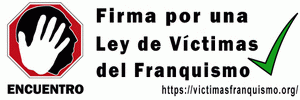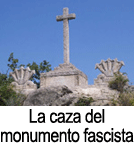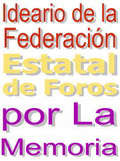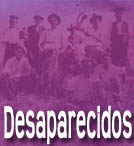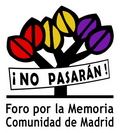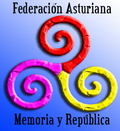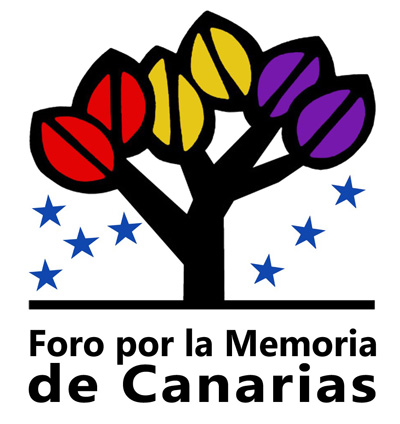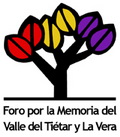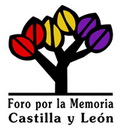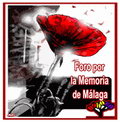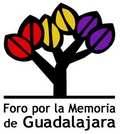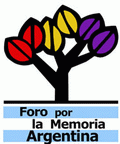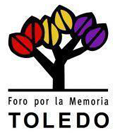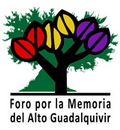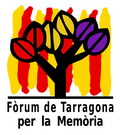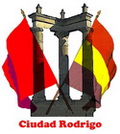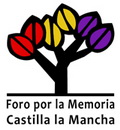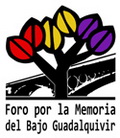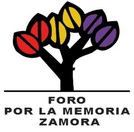F is for Franco but not for fascist, apparently
 The new Spanish Dictionary of Biography’s historical revisions tell us more about what’s wrong with Spain now than in the past
The new Spanish Dictionary of Biography’s historical revisions tell us more about what’s wrong with Spain now than in the past
Miguel-Anxo Murado
guardian.co.uk, Thursday 2 June 2011
Did you know that General Franco was not a dictator, just a bit too «authoritarian»? What about the people who opposed him? Ever felt the temptation to call them democrats or anti-fascists? Wrong. According to Spain’s Royal Academy of History, the right term should be either «bandits» or «terrorists».
At least that is what the academy says in its recently released Spanish Dictionary of Biography, a mammoth 50-volume endeavour to put everyone in their place in terms of national history – the «Spain’s got talent» of historical revisionism. And if you’re already thinking that this Royal Academy must be some shadowy Francoist webpage with a phoney name you’re wrong again: it is the real thing, the royal thing, the actual academy founded in the 18th century to bring the Enlightenment to Spain, and apparently still failing to do so 300 years later.
The fact that the dictionary has been presented under the patronage of the king himself and handsomely paid with taxpayers’ money to the tune of €6.5m is doing very little to lessen the scandal many specialists and ordinary Spaniards feel at this body of work which, among other things, routinely refers to the republican side in the civil war as «the enemy» while Franco’s troops are described as «the national army». Or, for example, when it praises the «pacification» of several regions, by which it means the execution of thousands of democrats, socialists, teachers and passersby in general. It’s a pity that people cannot overcome their outrage, because some of it is quite hilarious. There are wonderful unintended punchlines, such as when, in a frenzy of praise for the Generalissimo, we learn that Franco had personally warned Lyndon B Johnson not to enter the Vietnam war (if he only had listened!). Franco, the incorrigible pacifist …
But surely history is about different opinions, isn’t it? Shouldn’t we respect this view as valid as any other? Didn’t the postmodernists teach us that history is anybody’s guess?
No, I’m afraid. History is based on the free discussion of different points of view, but once a reasonable consensus is reached on a topic, those who insist, for example, that Napoleon was a humble man who hated violence are not taken seriously and never make it into a mainstream reference work. The consensus about the Spanish republic is that it was a legitimate and democratically elected regime, whatever its flaws; and the consensus about Franco’s regime is that it was a dictatorship, whatever its (alleged) merits. Even Franco saw himself as a dictator; in this he was more honest than his biographer. We can argue endlessly about specifics, but nothing changes those facts, in the same way that considering (like we should) the horrors of Hiroshima or Dresden doesn’t turn Nazism or Japanese imperialism into better alternatives to V-Day.
So, how is this anomaly possible in Spain? That’s the problem with this dictionary. It’s not what it says about our past. Whatever you think about the past, at least it has the advantage that is gone for ever. The problem is what this dictionary tells us about our present.
It tells us of a Spanish right wing that has been able to embrace democracy but still rejects its memory, preferring that of a fascist regime responsible for a horrible war and years of repression. In some cases it’s the need to justify the family history; but in others it’s a prejudice so strong in the present that it projects itself back into the past.
Whatever the reasons, José María Aznar’s eight years as prime minister between 1996 and 2004 were a great opportunity for his Popular party (PP) to distance itself from its slightly Francoist origins. But the opposite happened: it chose to legitimise Francoism instead. A whole school of revisionist historians was promoted to great success, endlessly recycling the old Francoist myths. It would have been just ridiculous were it not that at the same time the government was denying thousands of citizens the right to unearth their loved ones from the archipelago of mass graves which still covers the whole country.
It was Aznar, in fact, who commissioned the Spanish Dictionary of Biography from the Royal Academy of History. Like a sleeping dragon it has made it through eight years of socialist rule, just in time to wake up for the next PP government, if the polls are correct. As they say: You never know what past awaits you in the future.
http://www.guardian.co.uk/commentisfree/2011/jun/02/franco-spanish-dictionary-biography


